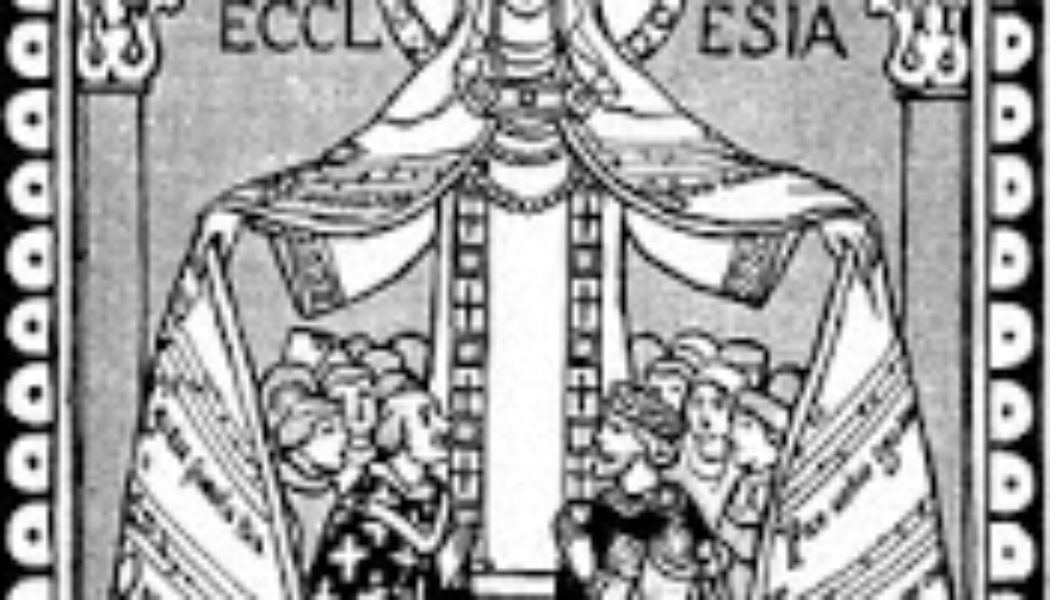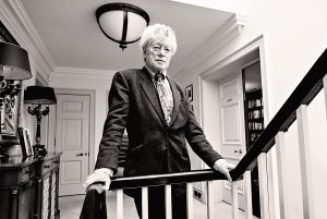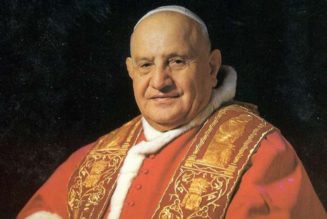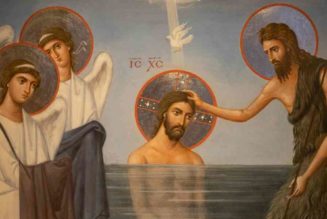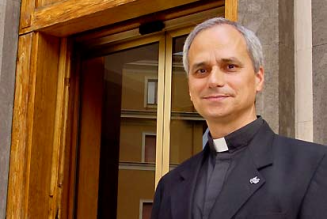In Catholic
theology, the Church is not to be identified with a mere aggregate of her
members, not even those members who happen to hold ecclesiastical office at any
particular moment. She is an institution
which existed before any of her current membership did and will continue to
exist when they are gone. But more than
that, she is a corporate
person, who can be said to think and to will, and to have rights and
duties and other personal characteristics.
Even more specifically, she is a person of a feminine nature, the Bride
of Christ and the Holy Mother of the faithful, nourishing them through
sacrament and doctrine in a way analogous to a human mother’s nourishing of her
children.
For this
reason, the character of the Church is not to be looked for in a snapshot of
the members who exist in any particular generation, but rather in the attributes
that persist through time. In
particular, her doctrine – the “mind of the Church” – is not to be found in the
body of theological opinions that happen to prevail among laymen, theologians,
priests, or bishops at some period of history.
Rather, it is to be found in the formal teaching of the Magisterium over
time, both extraordinary (official definitive decrees of councils, popes, and
the like) and ordinary (the consistent and constantly reiterated teaching of
centuries which, simply by virtue of this consistency and reiteration, is
authoritative even when not conveyed in conciliar decrees, ex cathedra statements, and the like). Similarly, the holiness of the Church’s
character is not necessarily to be found in the moral attributes that prevail among
the membership or clergy of a particular generation. Rather, it is to be found in her consistent
tendency for two millennia to produce saints.
If a man suffers
for weeks from a broken arm or a persistent flu, we don’t for that reason judge
him to be generally of poor health. Nor
do we do so even if such conditions recur from time to time. Someone of generally good health can suffer
bouts of illness. And in the same way,
the Church’s indefectibility and holiness are not undermined by the fact that
in some generations she is especially afflicted with members and leaders who
are foolish, wicked, or otherwise fail their Mother and her divine Spouse. The Church, as it is said, thinks in
centuries. And that is the scale at
which she must be understood.
Naturally,
the skeptic will have all sorts of questions, but getting into the details
about what sorts of errors are compatible with the Church’s claim to
infallibility is not what this post is about.
I have addressed such matters elsewhere (see the links below). This post
is primarily addressed to those who agree with, or at least sympathize with,
the claims the Catholic Church makes about herself, but who are scandalized by
the moral and theological crisis she is currently suffering through. And it is occasioned by Rod Dreher’s recent
comments on Catholic traditionalist writer Steve Skojec’s cri de
coeur about the state of the Church.
Dreher
famously left the Catholic Church for Eastern Orthodoxy some years ago, after covering
the clergy sexual abuse scandal as a journalist, and having understandably been
appalled both by the evil perpetrated by the abusers and by the failure of the
hierarchy properly to respond to it.
Skojec is appalled by this abuse as well, and also by the heterodoxy
that has in recent years not only gone unchecked by the highest authorities in
the Church, but been positively aided and abetted by some of them. But he also bemoans the insularity,
self-righteousness, ineffectiveness, and susceptibility to crackpot political
ideas that he sees among too many of his fellow traditionalists. And his article was occasioned by outrage at
some shabby treatment he says his family has been subjected to at his
traditionalist parish. Skojec stops
short of saying that he is going to leave the Church, but Dreher suggests that
Skojec should consider following his own lead and switching to Eastern
Orthodoxy.
I know
nothing about the people Skojec accuses of spiritual abuse, and thus have no
comment on the fairness of his charges or on his personal situation, other than
to say that he is obviously suffering and I feel bad for him and wish him
well. And while traditionalist Catholics
are in general unfairly maligned, it is of course true that there are crackpots
and insular and self-righteous people among them (as there are within any
group) and that the political and ecclesiastical crises of recent years have
exacerbated this. I also do not question
Dreher’s sincerity, and it is clear to anyone who has read his work over the
years that he suffered greatly from what he uncovered while reporting on the
sexual abuse scandal.
Dreher’s dramatics
I do,
however, question Dreher’s judgment, which is manifestly bad, and not an
example for Skojec or anyone else to follow.
By his own admission, Dreher’s decision to leave the Church was driven
by emotion rather than reason. From what
I can tell, he does not even claim to have any response to the arguments that
once convinced him of the truth of Catholicism.
He talks instead about how his heart was broken by the evil done by the
abusers, the hypocrisy and corruption of the hierarchy, and the self-deception
of well-meaning fellow Catholics. He
talks about coming to see that his own commitment to Catholicism had been
marred by pride and self-righteousness.
He tells us that to be a good Christian it is not enough to have good
arguments and to follow the letter of the law.
He tells us that in the days before he left the Church he had become so
filled with anger that it “blinded [him] to the good and holy things in the
Catholic Church,” and that leaving for Orthodoxy provided a kind of release
that led to a healthier spirituality.
Well, that’s
all fair enough. The trouble is that it
simply does not in any way entail that the claims the Catholic Church makes are
false, and Dreher knows it. Again, he
offers no counter-arguments in response to the arguments he once took to be
compelling. He also admits that exactly
the same maladies that he saw when he was still a Catholic can afflict, and
have afflicted, every other movement, organization, and church, including
Eastern Orthodoxy. Hence he essentially
acknowledges that he has no rational basis whatsoever for what he did, but was
led by an emotional response to his own personal situation.
Like all
people who act contrary to reason, Dreher tries to rationalize his doing so,
with clichés about how we are creatures of emotion and not just intellect, how
following rules and producing tidy arguments is not enough, etc. Of course, this is all muddleheaded. Dreher himself would not be impressed by this
sort of rhetoric if it were offered by someone who disagreed with him. For example, Dreher is a Christian, and one
who embraces the traditional theological and moral teachings of the faith. If someone rejected all of that on the basis
of some bad experience or emotional crisis, and went on about how we are
creatures of emotion, how rules are not enough, etc., Dreher would not take
this to be a good reason to doubt the truth of Christianity. He would say that he feels for such a person
and does not judge him, but that ultimately such a person is simply
mistaken. What he does not seem to
realize is that the same thing can be said about him. Like someone who understandably but wrongly
rejects Christianity because of painful personal experiences, Dreher has
understandably but wrongly rejected Catholicism because of his own painful
personal experiences.
No doubt
Dreher thinks there is more to it than that, but he explicitly declines to
offer any rational grounds for
thinking that there is more to it than that.
And when you start out by eschewing reason, you have by definition lost
the argument. Dreher would regard such a
judgment as too coldly logical, but of course, that is precisely to double down
on the mistake rather than to show that it is not a mistake. Human beings are by nature rational
creatures. Yes, we are more than that, but the point is that we
are not less than that. Accordingly, though a sound worldview ought
to satisfy our emotions, if it cannot also pass the test of rational
justification, then of necessity it floats free from objective reality. Dreher knows this, and rightly condemns
subjectivism when he sees it in Critical Race Theory, transgender extremism, and
other malign ideologies and movements. He
just doesn’t see it in himself. This
cognitive dissonance is why, despite eschewing reason, Dreher has for years
been going on at length trying to justify
his eschewal of reason, and therefore succeeds only in tying himself in
knots.
I don’t say
this to condemn Dreher, who seems to be a good guy and whose writing I have
enjoyed and profited from over the years.
But it must be said when he is trying to lead others into making the
same mistake he made.
Providence’s timetable
It is easy
for writers whose focus is on politics and current events to be too easily
scandalized and impatient. This is
probably especially so of us Americans. Our
“shining city on a hill” idealism demands perfection in our institutions, leaders,
and fellow citizens. When we don’t get
it, our “can do” mentality wants a solution to the problem and wants it now.
When satisfaction isn’t forthcoming, our “don’t tread on me” mentality threatens
to throw the bums out when we can, and to pick up our marbles and go elsewhere
when we cannot.
Well, this
is simply not how divine providence works, as scripture and Church history make
clear. Christ repeatedly warns us that
we will face suffering, persecution, martyrdom, false teachers, and a degree of
wickedness that will threaten to make our charity wax cold, and that this is
part of the deal when we take up our cross and follow him. Why are we surprised when it happens? Do we suppose that he didn’t really mean it?
Skojec is
scandalized by the fact that the confusion and heterodoxy fostered by Pope
Francis’s many doctrinally problematic statements have not yet been remedied
despite his having been in office for eight years. This is quite ridiculous. Eight years is nothing in terms of Church
history. The utter chaos introduced into
the governance of the Church by Pope Stephen VI’s lunatic Cadaver Synod lasted
for decades. So did the chaos of the
Great Western Schism. Pope Honorius’s
errors were not condemned until forty years after his death. Further examples could easily be given. Few people remember these events now, because
things eventually worked themselves out so completely that they now look like
blips. If the world is still here
centuries from now, Pope Francis’s chaotic reign will look the same way to
Catholics of the future.
Then, of
course, there is the martyrdom which the earliest Christians suffered for
centuries, which Christians of recent decades have suffered under communism and
Islamism, and which countless Christians have suffered in the centuries in
between. Needless to say, this is worse
than being treated shabbily by self-righteous fellow Catholics or being disappointed
by feckless bishops.
In no way do
I mean to mock Skojec’s or Dreher’s evident pain. On the contrary, I feel for them. But pain can blind us to reason and to our
duty. And it can blind us to the fact
that we do not suffer it alone, that Christ permits us to undergo it only
because he suffered it himself. We need
to put suffering into perspective, to unite it to Christ’s suffering, and to
accept it in a spirit of penance and solidarity with others who suffer,
especially those who suffer worse. We
need to keep in mind that, in the Church at large, Christ will set things right
in his own good time. And we need to
focus on the fact that in that part of the Church over which each of us does have control – namely, the state of
our own souls – we need endure only for the four score and ten that is the most
that most of us have.
It’s personal
Dreher,
Skojec, and others scandalized by the state of the Church may still find this
too bloodless and impersonal. Fair
enough. I return, then, to the point
with which I began, which is that the Church is a personal institution. When a Catholic abandons her, it is not like
quitting a political party, or cancelling a subscription, or deciding no longer
to use a company’s products. It is more
like breaking off a relationship with another human being.
But in fact
it is worse even than that. When a
Catholic leaves the Church because he is scandalized by heresy, sexual abuse,
and the like, this is like fleeing the scene when one’s mother is being
attacked, lest one suffer harm oneself.
It is to abandon Holy Mother
Church, the Bride of Christ, to the heretics and perverts, rather than to
aid her against them and to suffer with her while they assail her.
The matter
couldn’t be less academic. What is in
question is no mere intellectual error.
It is a matter of personal loyalty or betrayal. Or don’t we believe what Christ said about the
nature of the Church for which he himself suffered and died?
Related
reading:
The
Church permits criticism of popes under certain circumstances
The
strange case of Pope Vigilius
Some
comments on the open letter
Popes,
heresy, and papal heresy
Why
Archbishop Viganò is almost certainly telling the truth
Join Our Telegram Group : Salvation & Prosperity
